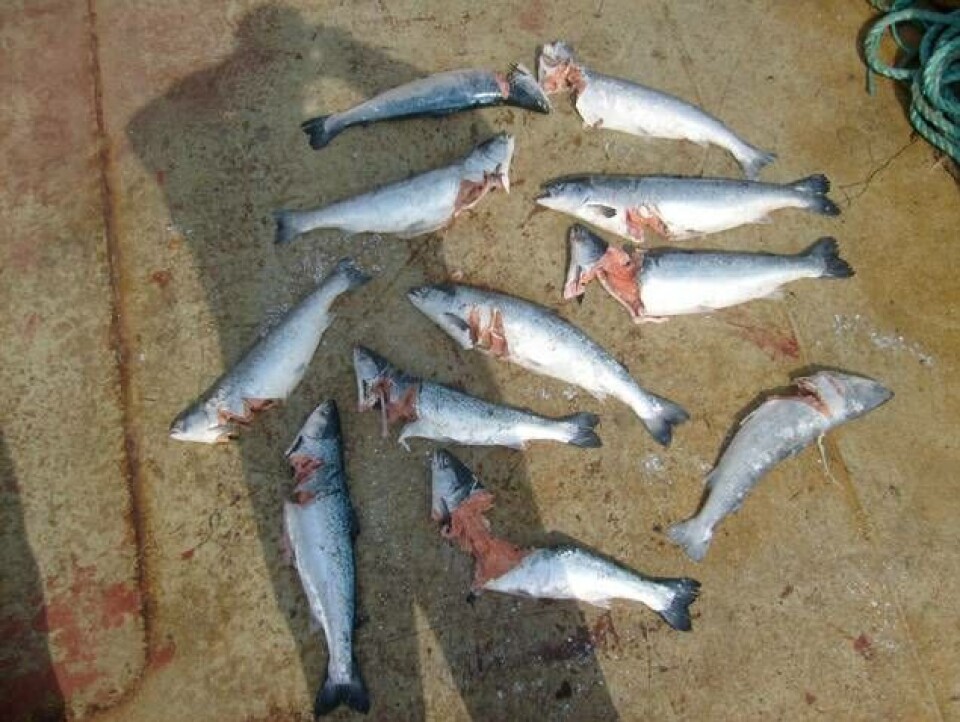
Salmon chiefs seek clarity on possible US ban
The Scottish Salmon Producers' Organisation is seeking legal advice as it tries to work out the potential implications of a possible US ban on the import of salmon from areas where seals are shot.
SSPO chief executive Scott Landsburgh: "I've sent it to our lawyers now to give us a legal opinion. Anything that could impact on something as important as our exports to the United States needs to be taken seriously.
"The US has passed a regulation that on the face of it looks like as if salmon is being imported from a jurisdiction that condones the lawful bringing into harm of seals or other marine mammals, then that fish product will be excluded from its ability to be imported to the US market.

No definitive answer
"The regulation was written and passed within the last 12 months, but it's not going to kick in until 2021. There is a period of derogation, so that the relevant jurisdictions can bring their laws and regulations into line with that.
"It all hinges on what the definition of a jurisdiction is, because it may be that it is just a local jurisdiction that they are talking about. If there's been a shooting of a seal, it may be that that area won't be able to export salmon to America, but other areas will be. We're looking into exactly what that means, and we don't have a definitive answer yet from either the EU, Defra or the Scottish Government, and they have to deal with the American authorities via the EU.
"On account of that I have decided to get a legal opinion here in Scotland, and that's what I've asked my legal advisers to give me."
'Trigger happy'
Any US import ban would presumably also apply to Norway and the Faroes, who not only shoot seals but also kill whales.
The issue of seal shooting hit the headlines at the weekend when the Sunday Times reported that the number of seals shot in Scotland to protect fish farms and fisheries rose from 41 in the first half of 2016 to 61 in the first half of this year.
Anti-fish farming campaigners quoted by the newspaper described Marine Harvest and the Scottish Salmon Company as "trigger happy" and repeated their warning that the industry risked being banned from the US market.
Marine Harvest shot 11 seals in the first half of 2017, up from eight in the same period in 2016, while the Scottish Salmon Company shot six. In spite of the rise, the general trend is for fewer seal shootings. There were under 100 last year, compared to 450 in 2011.
Preferred method of deterrence
Fish farmers were accused of opting to shoot seals because it was a cheaper option than using expensive predator nets. But the nets are not a total solution against seals.
Steve Bracken, business support manager for Marine Harvest Scotland, said: "We don’t use predator nets now. We have done in the past and but we had issues with seal pups and diving birds caught in the larger mesh of the predator nets.

"We are using tensioned nets, seal blinds and where we’re allowed we use Acoustic Deterrent Devices (ADDs) which is our preferred method of deterrence."






















































